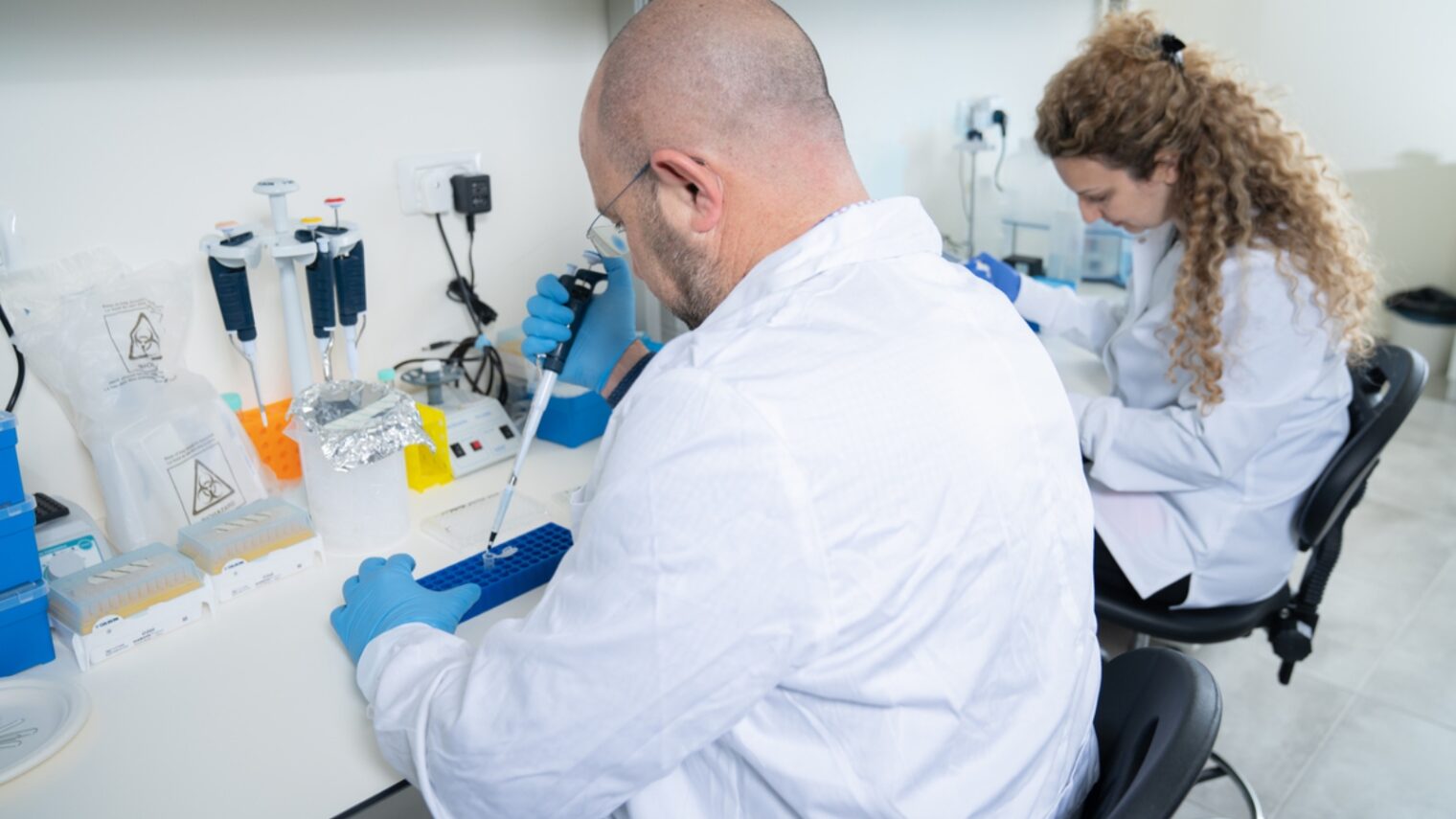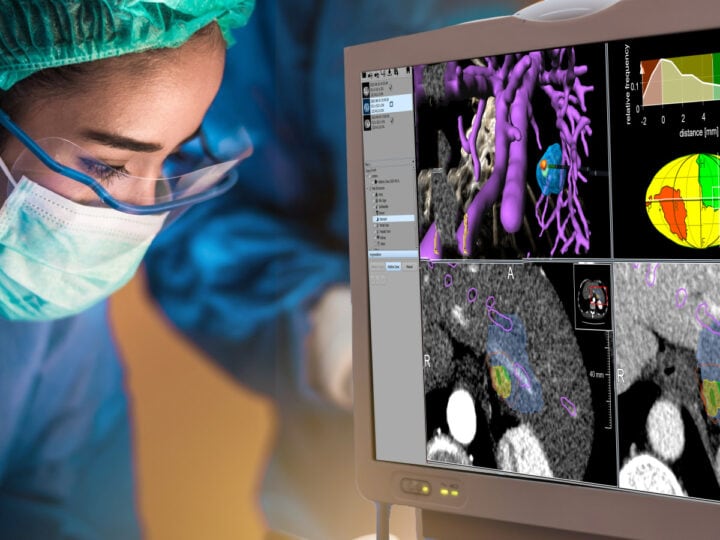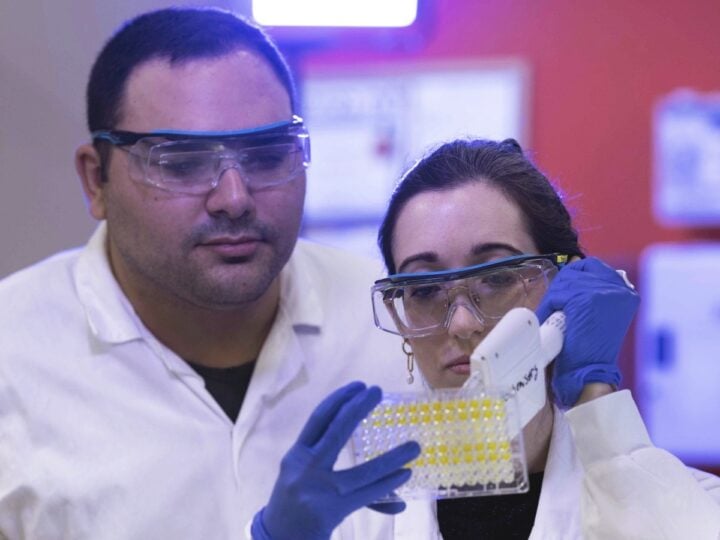Treating cancer has traditionally been “one size fits all.” Oncologists cannot reliably predict which medications are most likely to work in each individual and which are liable to lead to resistance.
Binyamina-based OncoHost is developing a platform that can predict exactly who will respond to what treatment.
The company has raised $50 million to launch its PROphet system which, if it works as promised, could significantly aid physicians, cut clinic costs and, most importantly, reduce unnecessary deaths due to picking the wrong pharma horse to bet on.
The American Society of Clinical Oncology has defined “the identification of strategies to better predict patient response” to treatment as a high priority area of research.
ISRAEL21c spoke with Dr. Ofer Sharon, cofounder and CEO of OncoHost. He describes PROphet as “a personalized, real-time dynamic ‘disease navigator.’”
“Look at a 45-year-old man with lung cancer and an 85-year-old woman with the same disease,” Sharon says.
“Treatment today looks at these two as if they are the same person, but that’s not the case. They have different response patterns and different resistance. We start treating and we don’t know which patients will benefit and which will not. It sometimes takes a long time to realize what’s going on with your patient; time is not something patients with advanced cancer have.”
The hit-or-miss approach is outlined in this chart.
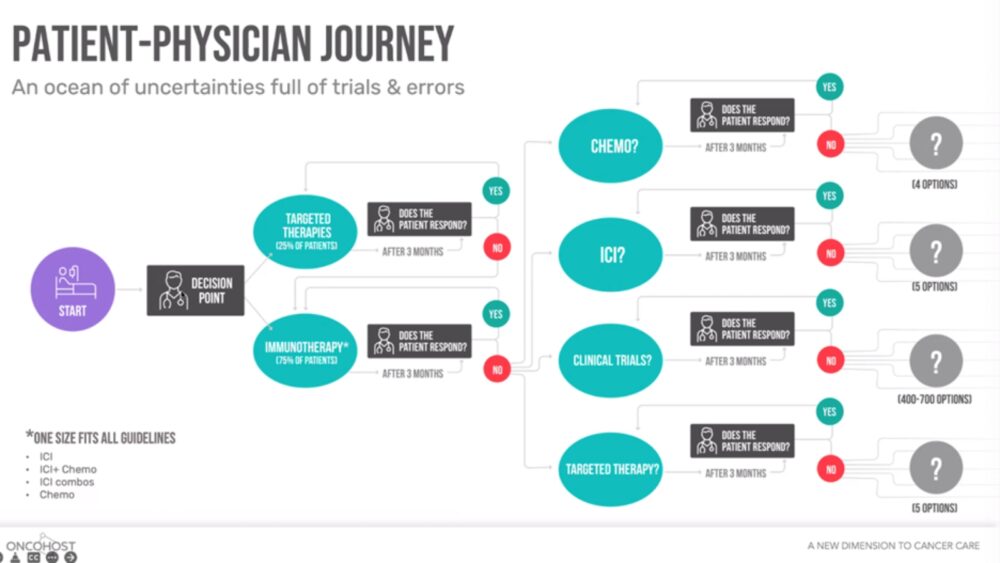
OncoHost’s technology starts with a single blood test. PROphet uses machine learning and artificial intelligence to analyze “proteomic patterns” (changes in the approximately 7,000 proteins produced in an organism) in the blood sample to monitor how a patient will do on a particular drug.
It helps with early identification of non-responsiveness to cancer treatments and can also advance the discovery of new drug targets to overcome treatment resistance.
“Our aim is to provide clinicians with answers to three questions,” Sharon explains. “Will my patient respond to treatment? Why is he or she not responding? And what should my next step be? So much is based on trial and error. We don’t want to do that for a stage 4 lung cancer patient.”
Proof is in the proteins
OncoHost’s technology is based on research by Prof. Yuval Shaked, head of the Integrated Cancer Center at the Technion-Israel Institute of Technology in Haifa. Shaked is the chief scientific advisor to OncoHost.
Shaked realized that while most research into cancer resistance has looked at changes related to tumors, it’s also important to look at how the patient’s body “protects” the cancer from the treatment. He discovered that sometimes cancer therapies can even hasten progression of the disease.
Shaked initially looked at this in the context of chemotherapy (which typically harms both cancerous and healthy cells), but subsequently discovered that the same process occurs in almost every type of anti-cancer medication, including the most exciting advance in cancer treatment today: immunotherapy.
Shaked determined that the answer to this deadly conundrum would not be found in the DNA, Sharon tells ISRAEL21c.
“But if we can learn the patterns of host response [in the patient’s body], then we can go back to the pre-treatment phase to see if those patterns existed before we started therapy. The protein patterns found in the blood are what will tell us if a patient will respond or not.”
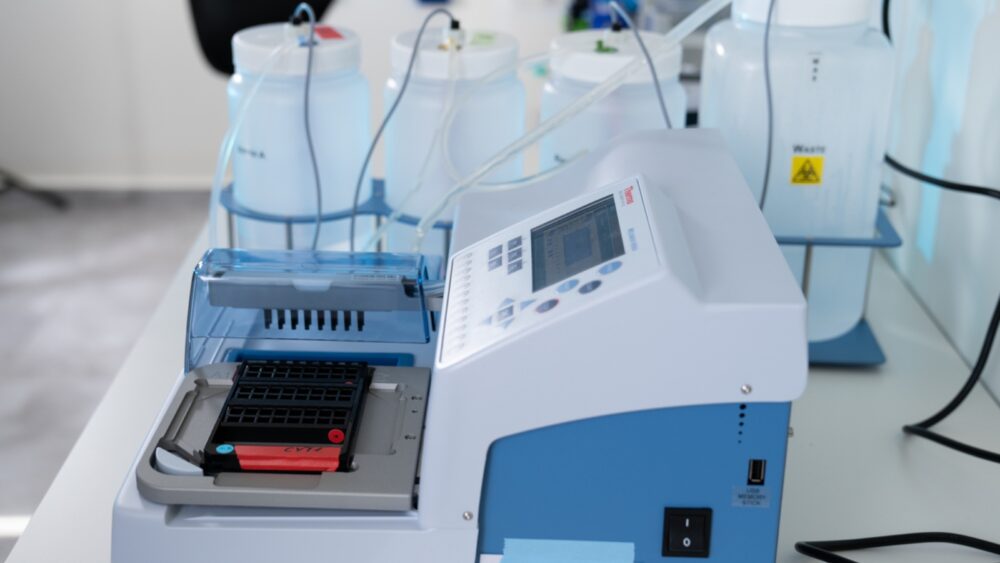
Why are proteins so important? Traditional cancer treatment prompts the host to release proteins and other growth factors that too often wind up shielding the tumors and allowing them to flare up and potentially metastasize – the exact opposite of what clinicians seek.
That isn’t a fatal indictment for all cancer treatments. It just shows that certain drugs may not be suitable for every patient. Discerning what works and what doesn’t in advance, before the cancer can spread too widely, is OncoHost’s mission. The goal is to enable truly personalized medicine on a patient-by-patient basis.
This is particularly critical for immunotherapy, where only 20% to 30% of patients with solid tumors respond.
Data for greater success
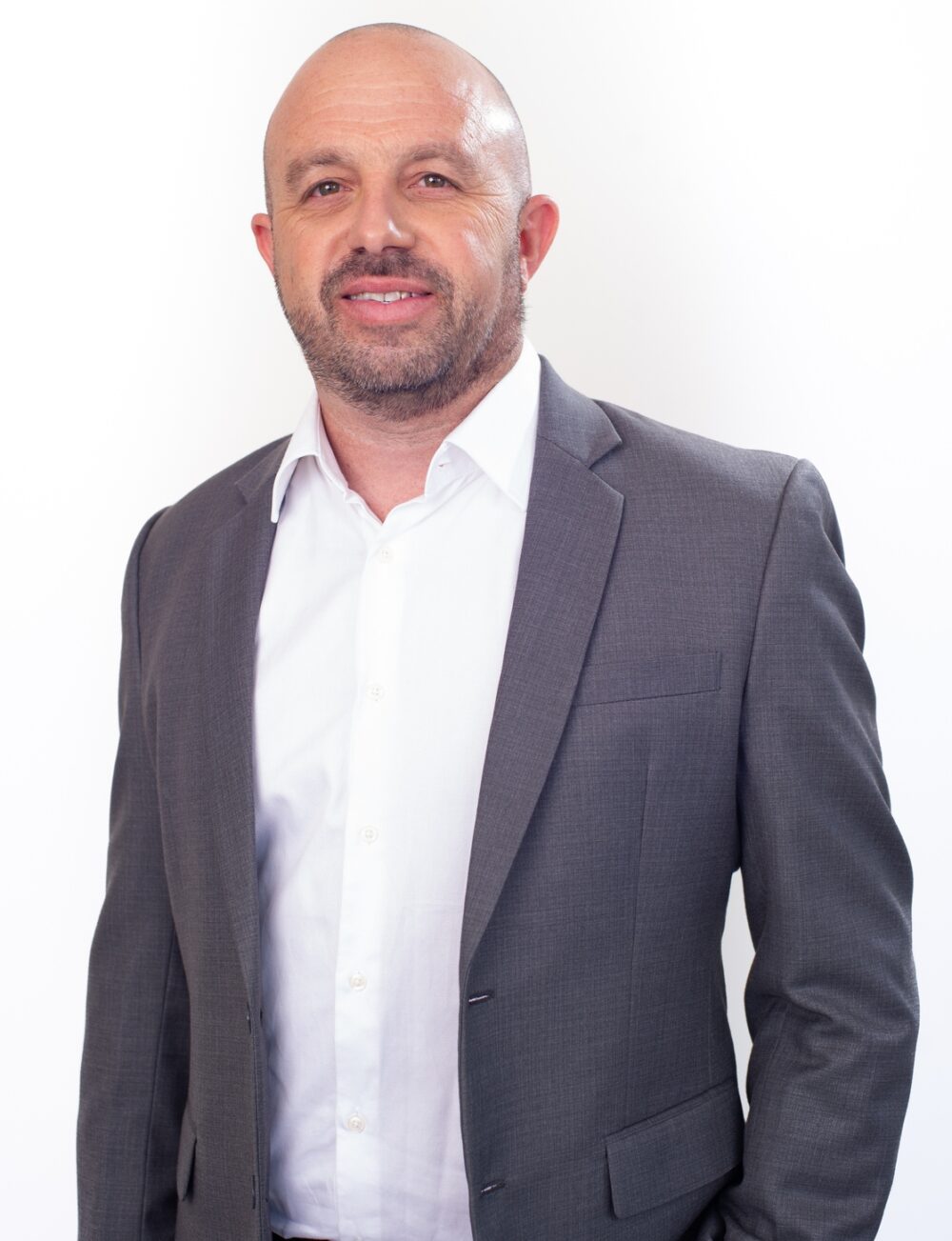
Sharon says that OncoHost’s predictive algorithms can “provide clinicians with a 12-month trajectory before treatment starts with an accuracy level for prediction vs. observed response of 98% at three months, six months and 12 months.”
Click here to read the latest study on the role of blood plasma proteomic profiling for assessing resistance in non-small cell lung cancer patients undergoing immunotherapy, published in the Journal for Immunotherapy of Cancer.
Once OncoHost has analyzed the resistance probabilities in a patient, it checks the results against a database of drug targets organized by specific proteins. Drugs can be those that have already been approved or those in development and clinical trials.
“We provide clinicians information that doesn’t exist at such an early stage,” Sharon notes. “We’re not promising you success, but we’re giving you the data.”
What happens after 12 months? “We’re doing a two-year follow up right now,” Sharon says, which is the amount of time the company has been studying responses. OncoHost will eventually monitor patients for five years.
The technology is currently being tested on non-small cell lung cancer (NSCLC) and melanoma. Blood cancers are not on the current agenda, in part because they respond well to the latest generation of immunotherapy and thus the need is less acute than with solid tumors.
OncoHost is currently conducting clinical trials at over 35 sites in Israel, Europe, the UK and the US, Sharon says. Some 700 lung cancer patients and 150 with melanoma have participated so far.
Individual approach
Sharon joined the company in 2018, a year after it was founded. At the time, “The company was still debating whether it wanted to be a drug development company or a diagnostic company. I took them in the diagnostic direction.”
What prompted that decision?
“I was head of medical affairs for Merck in Israel when we launched Keytruda, a new immunotherapy drug,” he tells ISRAEL21c. “It only worked for a minority of patients. That drove me crazy – that we cannot identify which patients will benefit from this treatment.”
Also bothering Sharon: “We were looking at cancer by indication but not as human beings. So, we’d talk about lung cancer, not patient X who has a tumor in his lungs. There’s a big difference between people.”
After a patient’s blood is drawn, it’s sent to OncoHost’s lab in North Carolina, which is due to start operating commercially later this summer. The company is working on a kit that can be used in-hospital, but that’s still in trials, Sharon says.
Once the results are in, OncoHost sends a report as a PDF to the clinician. A more sophisticated interactive web product may come, but not yet. “We don’t want to take any more time out of a busy doctor’s schedule so that they have to learn how to play with an app or a website. Doctors are very focused on seeing their patients,” Sharon adds.
OncoHost hopes to launch in the US this fall, with the UK and Europe not far behind. A potential collaboration with the United Arab Emirates is also in early stages.
As a predictive platform, OncoHost is not limited to analyzing proteins. Sharon hints that PROphet will “look at many aspects of disease” and more types of cancer with breast, pancreatic and colorectal cancer coming next.
The kind of proteomic analysis OncoHost is doing is clearly on the cutting edge. “When we look at DNA, that’s a potential biological process,” Sharon says. “When we look at a protein, we’re looking at actual biological processes.”
It may seem like a niggling difference, but for people with stage 4 cancer, it could make all the difference in the world.
For more on analyzing cancer treatments, click here




